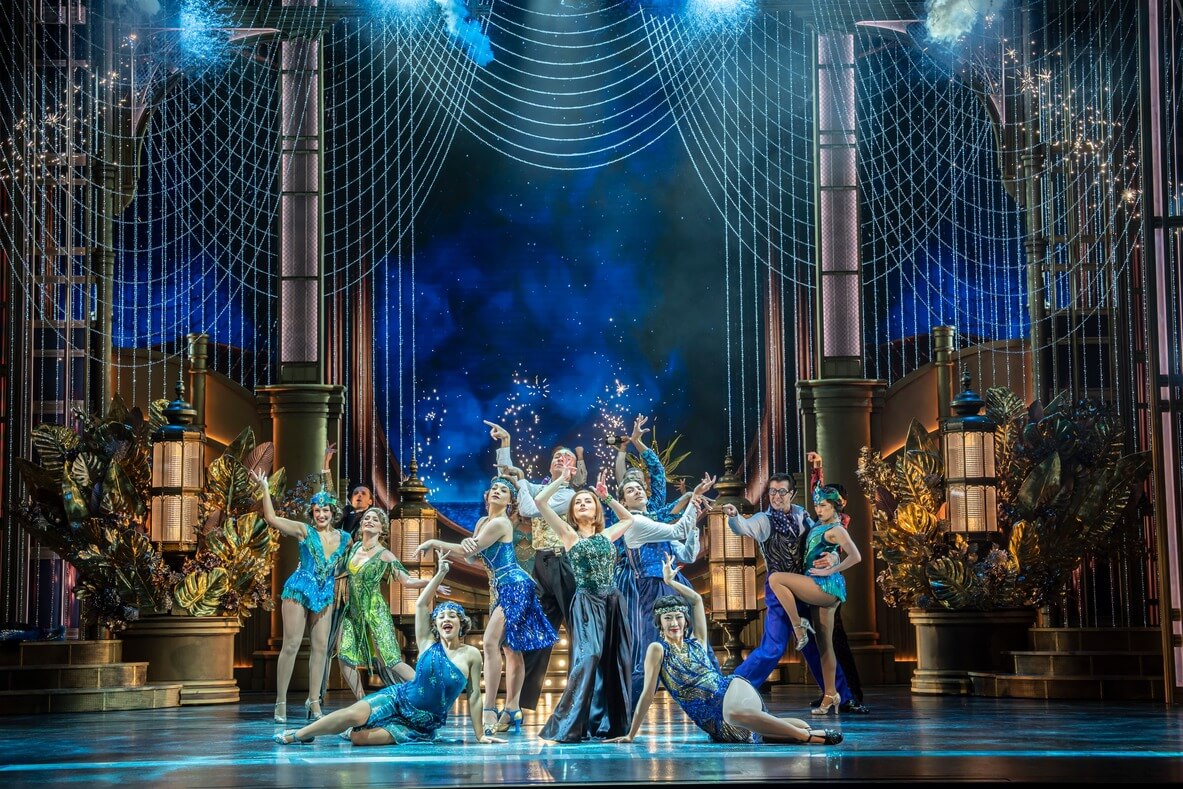Much like Churchill’s Cloud Nine or Far Away, it’s almost two separate plays: the first, a celebratory dinner party held by anti-hero Marlene with six women from history, fiction, and art; the second, a series of scenes which crystallise around little Angie, who’s not happy at home and yearns for the life of her aunt Marlene (she from Act One) who runs the quasi-fascistic Top Girls Employment Agency.
The surreal range of women presented in Act One ranges from women who succeeded in illicitly becoming Pope, to women from medieval paintings and poetry. The uniting thread is that they have all been authored or circumscribed by men. This proves to be the dominant theme: all the female potential we see is constrained by patriarchal structures. To make matters worse, the action is run through by a lack of female solidarity. We’re shown women not listening to each other, women cutting each other short shrift professionally, women not believing in each other’s potential, stepping on each other to get ahead, women matricidal in a world designed to hobble them. The sheer oddity of Act One helps gloss the more naturalistic scenes that follow with a more magical resonance.
Director Lyndsey Turner has clearly worked carefully to find the rhythm of Churchill’s text and its idiosyncratic rhythms, counterpoints, and sardonic humour. There’s a reason why - rumour has it - she’s the only director who Churchill will sit down to a conversation with. It’s a step up from her Light Shining In Buckinghamshire a few years ago. And it’s an uncomfortable world her production creates, without ever becoming Political theatre. Certain sections, such as when Mrs Kidd insists that her husband Howard should be given the job over Marlene on the grounds of the emotional fragility he’ll feel with a women in charge of him, feel freakishly contemporary to current conversations over female emotional labour and male fragility. Churchill remains a relevant voice in the British theatrical landscape.
Top Girls is ‘traditionally’ played with a cast of about 7 doubling as the 16 characters. The decision not to double the cast in this production is a fun experiment of exactly the sort the National exists for, but the doubled version might have given it an extra glue to bind the disparate halves together. But each cast member performs their function admirably - standouts include Liv Hill as troubled daughter Angie, who breathes fast when she’s lying, Wendy Kweh as distressingly smiley Lady Nijo, as well as Katherine Kingsley and Lucy Black playing sisters worlds apart.
The first act demands arguably too much from the viewer and we lack a hook to hang what we’re watching on - but perhaps we shouldn’t expect an avant-garde play that premiered in the Royal Court in the Eighties to be an easy watch. For the viewer prepared to endure, there are dividends in a truly great final scene with too many standout moments to mention.
An excellent production of a 1982 play still relevant in a world where painfully little has changed.

 Amanda Hadingue and Charlotte Lucas in Top Girls at the National Theatre. Photo by Johan Persson
Amanda Hadingue and Charlotte Lucas in Top Girls at the National Theatre. Photo by Johan Persson



 It’s fun to catch up with the West End’s long running shows so I was delighted to be invited to see this hit comedy on its third birthday. And I was even more delighted to discover that it’s as funny as everyone says.
It’s fun to catch up with the West End’s long running shows so I was delighted to be invited to see this hit comedy on its third birthday. And I was even more delighted to discover that it’s as funny as everyone says.